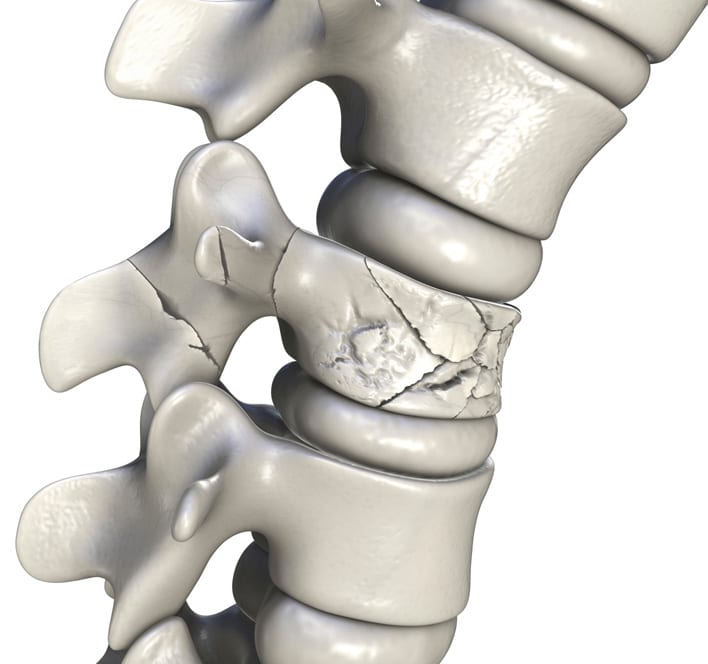Your spine facilitates every movement you make and can become easily injured due to trauma, stress, or weakened bones. One of the most common injuries individuals experience is a spinal compression fracture. While this condition can be painful and debilitating, your spine may heal independently with extensive rest. However, many patients cannot afford to spend months in bed and may need to seek treatment for relief. An orthopedic doctor can evaluate your condition and advise you on the best path forward to resolve your pain and heal your spine.
If you are suffering from a spinal compression fracture, seeking medical attention from a skilled spinal specialist is essential. At NJ Spine & Orthopedic, our experienced doctors and surgeons are here to help you regain your strength and mobility. We offer innovative, minimally-invasive treatments in our state-of-the-art facilities to prioritize your safety and comfort. Our doctors understand that no two spine injuries are exactly alike, and we personalize our treatment plans to ensure your unique needs are addressed.
Will My Spinal Compression Fracture Heal on Its Own?
While a spinal compression fracture can heal on its own, it can take up to three months with consistent rest. If a patient moves too much during this long recovery period, the pain may persist as the healing process grinds to a halt. An untreated fracture can also lead to height loss and a hunched back. It is also possible to rest too much and move too little, causing further damage.
Although your compression fracture may be able to heal without any additional treatment, a skilled orthopedic doctor can develop a home treatment plan to ensure you recover safely. Some home treatments your doctor may recommend include the following:
- Bed rest: Your doctor may advise bed rest for a few weeks before resuming light activities.
- Pain medications: Over-the-counter pain medications can help you manage your symptoms as you recover.
- Bracing: Much like a cast, a brace can help immobilize your spine and give it plenty of time to heal.
Your doctor will evaluate your symptoms and medical records to determine the best treatment plan to treat your pain.
Surgical Interventions for Spinal Compression Fractures
While more conservative methods such as rest, bracing, and physical therapy will always be our first choice to treat your symptoms, surgery may be required if your pain does not improve. A few surgical interventions we offer at NJ Spine & Orthopedic include the following:
- Lumbar Fusion: During this minimally-invasive procedure, your surgeon will fuse your affected vertebrae together, preventing the movement that causes your pain.
- Vertebroplasty: Your surgeon may treat your fractured vertebrae by injecting a special cement into the damaged area to stabilize the spine while maintaining mobility.
We understand how challenging it can be to get care with your chaotic schedule and offer same-day appointments so you can get the answers you need. Our stellar Concierge Team can help you obtain your medical records so you can have a successful appointment and will provide support throughout every stage of your treatment process.
Consult the Skilled Orthopedic Doctors at NJ Spine & Orthopedic Today
At NJ Spine & Orthopedic, spinal orthopedic doctors can help with spinal compression fractures by conducting physical exams, taking X-rays and CT scans to confirm the fractures, and recommending treatments that may help them heal independently or with surgical intervention.
Our orthopedic doctors are the leading experts in spinal conditions, relieving your symptoms from even the most severe ones. If you need help with your persistent and chronic neck or back pain, call (866) 553-0612 or complete our contact form to start the road to recovery.

